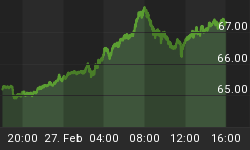While there is no universally accepted definition of a 'failed state', that term is said to be used to describe a State:
- that has lost control of its territory;
- that has lost its monopoly to use physical force in its territory;
- where legitimate authority to make collective decisions has eroded;
- that is unable to provide public services;
- that is unable to interact with other States as a full member of the International Community; and/or,
- that may have experienced social, political, and economic failure.
See further discussion of what constitutes, or may constitute, a 'failed state'. You can also review an interactive 'Failed States Index 2010' map.
If you participate in the equity markets and own shares of companies, irrespective of industry sector, that operate in developing countries I suggest you take the time to read a recently published lengthy article (with pictures) titled 'Postcards from Hell, 2011' - reading time as much as 1 hour. The article identifies and briefly describes each of the 60 countries that have been assigned the highest 'Failed States Index' ('FSI') scores. Of these 60 countries Somalia has the highest FSI Score (113.4), and the African country of Djibouti has the lowest FSI score (82.6). I carefully read each of the brief descriptors for each of the 60 countries referenced in the article, and learned a great deal that I did not previously know. Reading the article reinforced for me the views I expressed yesterday in my commentary titled 'Peru - Gold' as to the increasing importance in the current world economic environment of assessing country political and economic risk when making equity and debt investments.
As a matter of interest, in my 'Peru - Gold' commentary yesterday I mentioned only 3 of the 60 countries summarized in this article, being Cote d'Ivorie (Ivory Coast) ranked #10 with an FSI score of 102.8, Burkina Faso ranked #37 with an FSI score of 88.6, and Egypt ranked #45 with an FSI score of 86.8. Assuming the FSI scores set out in the article have at least some credibility, this suggests to me that the world may face much more societal disorder as we go forward than has been experienced to date.















